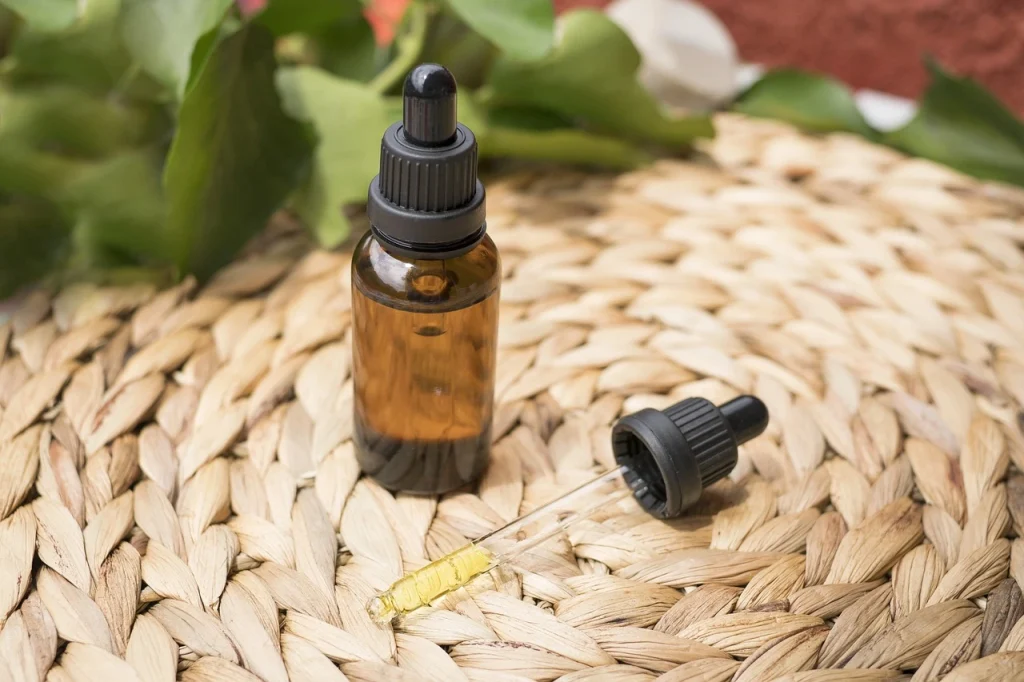CBD-based products have been increasingly in vogue in recent years, nationally and internationally. There is something for every need: chronic and acute pain, anxiety, stress, depression, sleep disorders, skin problems, inflammation and more.
CBD, or cannabidiol, is a cannabinoid from the cannabis plant that has no psychoactive effects but rather pain-relieving, anti-inflammatory and calming effects.
The most popular products are certainly CBD oils but there are also gummy candies, capsules, body creams, flowers and whatnot.
CBD is very appreciated as it does not have side effects, unless one is already taking other medications that might interact with the cannabinoid. For this reason, it is always recommended to seek advice from your doctor or a specialist.
Some of the drugs that people wonder most about, in terms of possible interactions with CBD, are benzodiazepines. Let’s take a look together at what these are and whether it is possible to take them while undergoing CBD therapy.
What is CBD?
CBD, or cannabidiol, is one of the main cannabinoids found in the cannabis plant (Cannabis sativa). Unlike THC (tetrahidrocannabinol), CBD does not have psychoactive effects, which means it does not cause the ‘high’ associated with marijuana use.
The main characteristics and benefits of CBD include its being:
- Anti-inflammatory: CBD is known for its anti-inflammatory properties, which are useful for treating chronic pain, arthritis and other inflammatory conditions.
- Pain reliever: It acts as a natural painkiller, by reducing pain without the side effects of traditional drugs.
- Anxiolytic and Antidepressant: It is often used to relieve anxiety, panic, stress and may have beneficial effects on mood.
- Anticonvulsant: CBD is effective in reducing convulsions, making it an alternative treatment for epilepsy, especially for drug-resistant forms.
- Neuroprotective: Studies suggest that CBD may help protect the brain against damage and promote neurological health, useful in neurodegenerative diseases such as Alzheimer’s disease.
- Antipsychotic: It is studied for its potential in treating psychotic disorders such as schizophrenia, due to its mood-stabilising properties.
- Skin Health Support: It is used in creams and lotions to treat conditions such as acne, eczema and other skin inflammations.
As for the side effects of CBD, it is generally considered safe and well tolerated by the vast majority of people, we speak of dry mouth, drowsiness, nausea and dizziness.
This natural chemical substance is still the object of much research to further explore its benefits and potential medical applications, positioning it as a key element in natural and integrative medicine.i applicazioni mediche, posizionandosi come un elemento chiave nella medicina naturale e integrativa.
What are benzodiazepines?
Benzodiazepines are a class of psychotropic drugs that act on the central nervous system and are mainly used for their anxiolytic, sedative, hypnotic, anticonvulsant and muscle relaxant properties. They are often prescribed for the treatment of anxiety, insomnia, panic attacks, epilepsy, muscle spasms and for the management of alcohol withdrawal symptoms.
The most common forms of benzodiazepines are:
- Diazepam (Valium): used for anxiety, muscle spasms and convulsions.
- Lorazepam (Ativan): used for severe anxiety and sleep disorders.
- Alprazolam (Xanax): common in the treatment of panic disorder and anxiety.
- Clonazepam (Klonopin): used for panic disorder and convulsions.
- Temazepam (Restoril): used for insomnia.
Benzodiazepines enhance the effect of a neurotransmitter called GABA (gamma-aminobutyric acid), which has a calming effect on the brain. This helps reduce neuronal activity, inducing relaxation, reducing anxiety and facilitating sleep.
Benzodiazepines: side effects
Although benzodiazepines are usually effective for these disorders, their use could cause a number of side effects, especially with a prolonged used or in high dosages.
Let’s look at them together in detail:
- Sedation and drowsiness: Feeling tired and having difficulty maintaining concentration.
- Dizziness and confusion: Effects that may impair the ability to perform activities that require attention, such as driving.
- Coordination problems: Increased risk of falls and accidents, especially in the elderly.
- Short-term memory loss: Difficulty remembering recent events or recently learned information.
- Physical and psychological dependence: Risk of developing dependence even with short-term use; withdrawal symptoms may include anxiety, insomnia, tremors, sweating and, in severe cases, convulsions.
- Paradoxical effect: In some individuals, especially children and the elderly, benzodiazepines may cause opposite effects, such as agitation, irritability or aggressiveness.
- Respiratory depression: At high doses, especially when combined with other central nervous system depressants such as alcohol or opioids, the risk of respiratory depression increases.
- Gastrointestinal problems: Nausea, vomiting or constipation may occur in some cases.
- Mood alterations: Sudden and unexpected changes in mood, such as depression or aggravated anxiety.
- Reduced libido and sexual dysfunction: Can affect sexual desire and sexual function in both sexes. In contrast, the sexual effects of CBD are entirely positive.
These side effects vary depending on the specific benzodiazepine, dose, duration of treatment and individual sensitivity. It is important that the use of benzodiazepines is always monitored by a physician to minimise the associated risks.uso delle benzodiazepine sia sempre monitorato da un medico per minimizzare i rischi associati.
CBD and benzodiazepines: possible interaction?
According to a study carried out on 146 patients who were simultaneously taking CBD and benzodiazepines.
What emerged was that yes, indeed the interaction between the two drugs did occur and it was found that CBD is capable of altering the metabolism of benzodiazepines, increasing the aforementioned side effects. In addition, some side effects of CBD and benzodiazepines overlapped, leading to decidedly negative results.
After 6 months of monitoring, the doctor decided whether or not to continue the patient on benzodiazepine treatment. The result was that after only 2 months, 30% of the patients stopped the benzodiazepines, after 4, 44.5%, and at the end of the study, another 45.2%.
In short, almost half of the patients discontinued benzodiazepine therapy in order to undertake a more natural one with medical cannabis.
The reason for this is very simple: CBD seems to be more effective than benzodiazepines and, above all, has fewer side effects.

Conclusion
CBD presents itself as a promising natural alternative to benzodiazepines for the treatment of neurological disorders, offering comparable benefits with a much lower side-effect profile.
Despite numerous ongoing studies and a still open debate, CBD is gaining recognition for its efficacy and safety.
However, it is essential to consult a doctor before starting any treatment and choose high quality products to ensure optimal results.
Products such as Maria CBD Oil’s offer safe and reliable formulations, representing a conscious choice for those seeking natural support for their own well-being.
Visit our webstore now!
 Contact us
Contact us 






